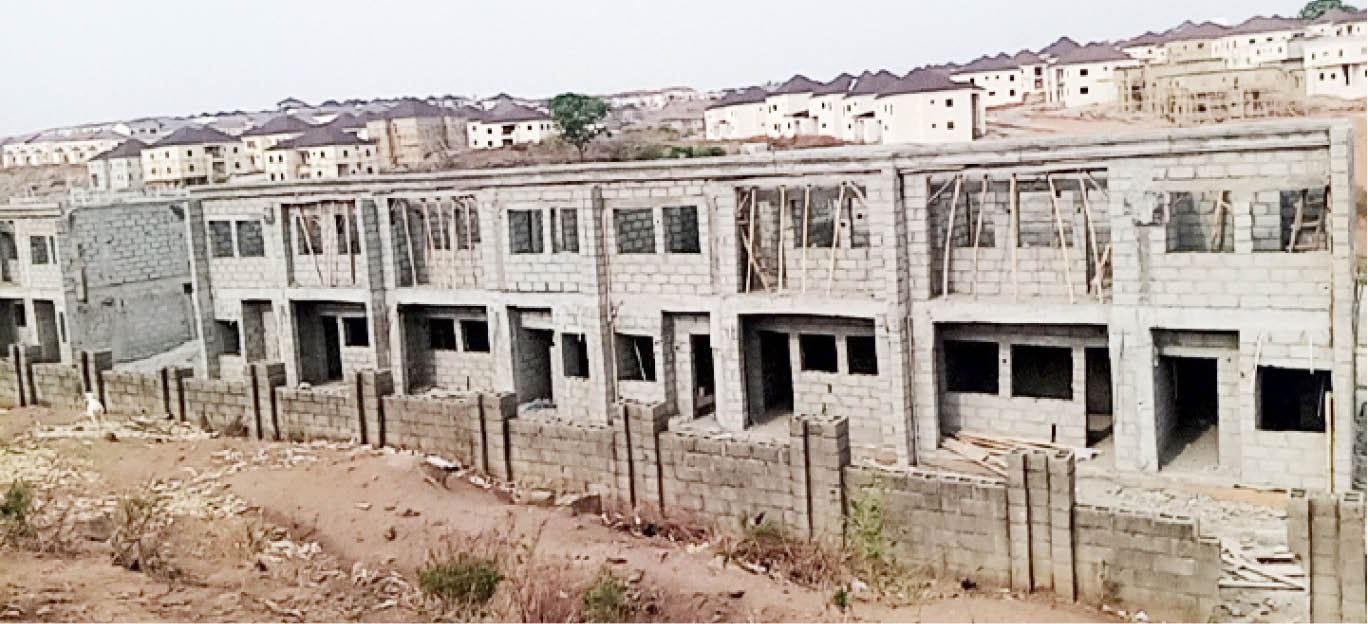In the last six years, the price of cement has risen from N1,600 in 2015 to N4,200 in 2021 forcing many people to abandon their building construction projects.
This has contributed to further widening the housing gap, which rose from 17 million units in 2015 to about 22 million units in 2021 according to statistics from the Federal Mortgage Bank of Nigeria and PrinceWaterhouseCooper(PwC).
Experts say it will require an investment of about N60 trillion to address the deficit building at least 900,000 houses every year in the country.
In the past three years alone, cement prices have increased by more than 30 per cent.
The prices of another building component, steel has skyrocketed by more than 35 per cent.
This has also led to increases in the prices of stone dust blocks from N120 to N230 for the nine inches block with concrete hollow blocks and interlocking stone going for N250 each.
In steel, the current prices make it difficult for low-income earners to build quality houses using the recommended steel rods.
For example, 1 ton (120 pieces) of 16 mm steel rod ranges from N804,000 to N900,000. Each 16mm steel rod (1 piece) sells for N6,500 to N6,700.
One ton (176 pieces) of 12mm steel rod ranges from N651,000 to N670,000 with one 12mm steel rod (1 piece) ranging from N3,500 to N3,850.
One ton (185 pieces) of 10mm steel rod ranges from N460,000 to N468,000 while 1 whole length of 10mm steel rod ranges from N2600 to N2800.
For 8mm steel rod, 1 piece ranges from N1700 to N1800 while 1 ton (282 pieces) of 8mm steel rod ranges from N470,000 to N479,000.
The market for cement constitutes the fundamental product in building and construction.
The fear of property developers and prospective homeowners lies in the fluctuating nature of the prices of cement in the market, which now costs from N3,500 to N4,200 depending on location.
“I have earlier planned to buy 100 bags of cement for my proposed 3-bedroom bungalow at the initial price of N2,600 but now cement sells for almost N4,000 in my area. I don’t think it will be possible to build again this year,” Mallam Garba Audu told Daily Trust in Uke, on the outskirts of Abuja.
He appealed to cement companies to consider poor Nigerians like him who are struggling to own a home before retirement.
Another prospective house owner, Mr Oluwakayode Komolafe, described himself as “a self-employed Nigerian who is actually a victim of the hikes in cement prices”, adding that “our construction works today have to be stopped because of this cement problem.”
He, however, sees the problem beyond the Dangote Group, which has about 60% market share.
Similarly, Basiru Saminu, an expert in the real estate business said the inability of many Nigerians to afford cement due to increase in the price of the product led to the abandonment of many construction works especially personal houses.
He said some of the industry leaders that announced a slash in their prices have not kept to their words thereby, worsening the situation.
On his part, Mr Maduka Kingsley while reacting on Twitter, said “Dangote is not the problem but distributors and middlemen. From ₦2,450 to ₦4,000, a profit margin of ₦1,550 per bag, this is outrageous and must be stopped. The federal government through its enforcement agencies should intervene, stop artificial scarcity and improve prices.”
But Mr Raji Kehinde, while reacting to the recent upsurge said if the government does not subsidize cement to assist toward meeting the housing deficit, Nigerians will soon be buying it at more than “N5,000 if it is not subsidized or regulated.”
Many owners of houses under construction are worried that they may not be able to continue the construction if the current prices persist.
A prospective house owner, Stephen Audu who is building in Mararaba at the outskirts of Abuja said: “If you look at what is going on with the economy, such as rising prices of food, school fees, cost of transportation, and inflation issues, and now cement, families are really struggling. It will be difficult for many low and middle-income earners to return to their building sites.”

 Join Daily Trust WhatsApp Community For Quick Access To News and Happenings Around You.
Join Daily Trust WhatsApp Community For Quick Access To News and Happenings Around You.


